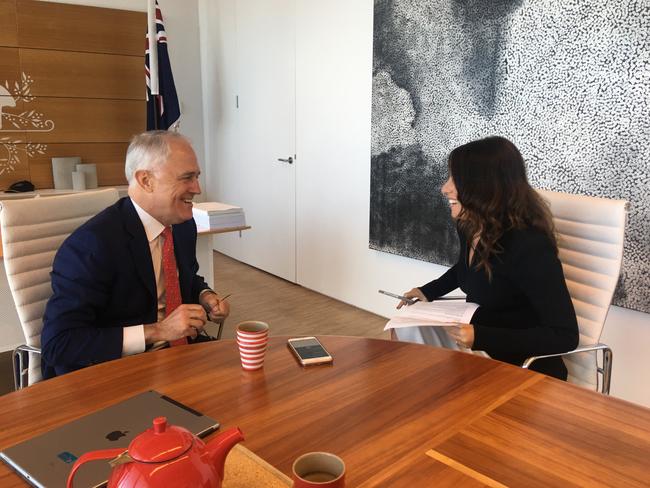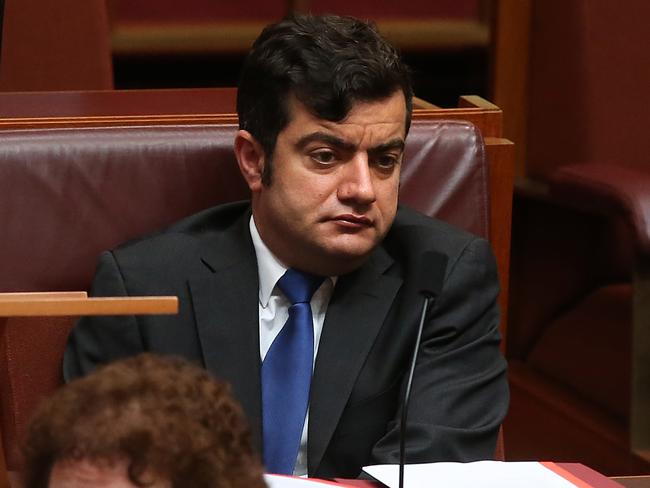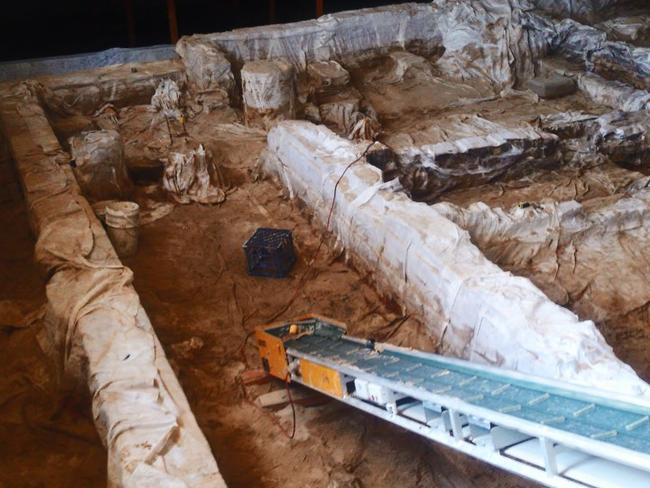The Daily Telegraph Editorial: Malcolm Turnbull looks to the future
THIS has been, by any measure, a strange year in politics. With continuing citizenship eruptions, accusations around the behaviour of Sam Dastyari and a crucial by-election this Saturday, we are a long way from the traditional Australian summer “silly season”.
Opinion
Don't miss out on the headlines from Opinion. Followed categories will be added to My News.
THIS has been, by any measure, a strange year in politics. Even with parliament done and dusted for 2017, there is no sense that anyone is letting up.
With continuing citizenship eruptions, accusations around the behaviour of Sam Dastyari and a crucial by-election this Saturday, we are a long way from the traditional Australian summer “silly season”.

For Turnbull, the priorities are clear: economic security, homeland security and energy security. This means the launching of the long-discussed Home Affairs portfolio in the next fortnight and, despite budgetary pressures, tax cuts for middle-income Australians. It also means pushing forward with the National Energy Guarantee, which he expects to be signed off next year. And it means guiding Australia through choppy international seas, buffeted on the one side by the rise of China and on the other by the new way of doing business with the US under Donald Trump.
But while keeping the economy ticking over and ensuring there is more money in the pockets of Australians, particularly beleaguered middle income earners, will be Turnbull’s biggest domestic priorities in the coming year, there will be challenges. Energy security is a big one: heading into the summer heat the government will surely be blamed if the power goes out, on the one hand, and if utility bills are too high, on the other.

Likewise, the approaching magic number of 30 Newspolls looms, something that Turnbull admits he regrets using as a benchmark during the overthrow of Tony Abbott.
That said, Turnbull appears for the moment to be upbeat about it all, having had a success with same-sex marriage and watched Labor’s claims of superior vetting processes to weed out would-be dual nationals in its ranks implode with two referrals and counting to the High Court. Along with the policy challenges of keeping Australians secure and prosperous and able to keep the lights on, parlaying these wins into long-term successes and winning over critics in his own party will be vital to his hoped-for success.
The oldest local in town
THERE may be nothing so lonesome as a pub with no beer … except, of course, for a 200-year-old pub that’s been buried for decades under Parramatta.
But all that is about to change with the unveiling of the remains of the city’s two-centuryold Wheatsheaf Hotel, which was discovered by builders during construction of Parramatta’s Vertical Village project.

The hotel, plus an 1800s-vintage convict hut, go on display today, giving the public a look at some of the best-preserved settlement architecture around. Sadly there’ll be no 200-year-old beer on offer as well but, actually, that may be for the best.
It’s looking dim for Sam
SAM Dastyari is rapidly wearing out his welcome in Parliament, and after the latest set of claims — namely, that he warned then-Labor foreign affairs spokeswoman Tanya Plibersek against meeting with pro-democracy activists on a visit to the Hong Kong.
Coming on the heels of this latest set of allegations concerning the NSW senator’s behaviour and apparent inclination to put the interests of Beijing before those of Australia, it is not surprising that frontbenchers Linda Burney and health spokeswoman Catherine King have suggested that Dastyari needs to think long and hard about whether he has any future in politics worth staying for.


Of course, not everyone in the ALP has abandoned Dastyari. Yesterday, campaigning in Bennelong, former NSW Premier Kristina Kenneally suggested the whole thing was a beat-up and blamed the Coalition for spreading “China-phobia”. It’s a transparently risible charge that seeks to create a diversion for Dastyari, whose list of hard questions to answer seems to grow longer with each passing day. Voters are not likely to appreciate the distraction from real and legitimate concerns.


